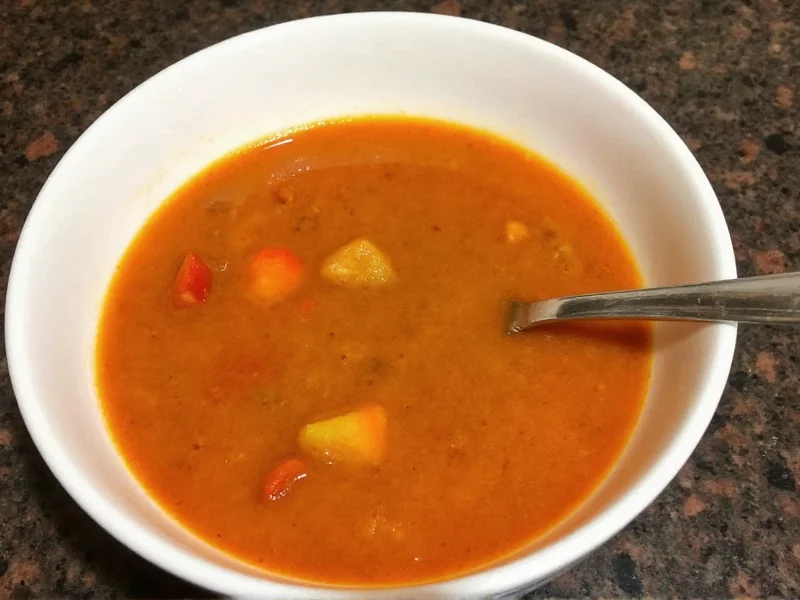When navigating the soup aisle for low carbohydrate options, understanding what qualifies as truly low carb is essential. Most nutritionists consider soups with 8 grams of net carbs or less per serving appropriate for low-carb diets. The best low carb canned soups prioritize clean ingredients like bone broth, leafy greens, and lean meats while avoiding thickeners, starches, and hidden sugars commonly found in conventional varieties.
Understanding Low Carb Labeling Standards
The term "low carb" isn't regulated by the FDA, creating confusion for health-conscious shoppers. Unlike claims like "low sodium" which have specific thresholds, manufacturers can use "low carb" freely. This makes reading nutrition facts panels crucial. Focus on net carbohydrates (total carbs minus fiber) rather than total carbohydrates when evaluating options.
Top Low Carb Canned Soup Categories
Certain soup varieties naturally align with low carbohydrate requirements. These categories typically offer the most authentic low carb options:
| Soup Category | Typical Carb Range | Key Ingredients | Diet Compatibility |
|---|---|---|---|
| Broth-Based (Chicken, Beef, Bone) | 0-4g net carbs | Meat stock, herbs, vegetables | Keto, diabetic, paleo |
| Creamy Vegetable (Asparagus, Broccoli) | 4-8g net carbs | Vegetables, cream, cheese | Keto, low-carb |
| Tomato-Based (Minestrone, Vegetable) | 8-12g net carbs | Tomatoes, vegetables, beans | Moderate low-carb |
| Cream of Mushroom | 3-6g net carbs | Mushrooms, cream, thickeners | Keto, diabetic |
Nutritional Considerations for Low Carb Soups
When evaluating low carb canned soup nutrition facts, consider these critical factors beyond just carbohydrate content:
- Sodium levels - Many low carb options compensate with high sodium; look for versions under 450mg per serving
- Added sugars - Check for hidden sugars like maltodextrin or fruit juice concentrates
- Protein content - Aim for at least 5g protein per serving for satiety
- Fat quality - Prioritize soups with healthy fats from olive oil or avocado oil
- Artificial ingredients - Avoid carrageenan and artificial thickeners common in "light" varieties
Comparing Popular Low Carb Canned Soup Brands
Not all low carb labeled soups deliver equal nutritional value. Our analysis of leading brands reveals significant differences in ingredient quality and actual carb counts:
| Brand | Product | Net Carbs (per cup) | Notable Features | Potential Drawbacks |
|---|---|---|---|---|
| Health Valley | Organic Low Sodium Chicken Broth | 1g | No added sugar, organic ingredients | Low protein content (1g) |
| Progresso | Light Cream of Mushroom | 7g | Good flavor profile, widely available | Contains modified food starch |
| Amy's Kitchen | Organic Light in Sodium Lentil Vegetable | 18g | High fiber, plant-based protein | Not suitable for strict keto diets |
| Healthy Choice | Grilled Chicken with Garden Vegetables | 9g | Higher protein (10g), no artificial preservatives | Contains corn starch |
| Swanson | Unsalted Chicken Broth | 0g | Pure broth, versatile base | Requires additional ingredients for complete meal |
Reading Labels for Authentic Low Carb Options
Identifying genuinely low carb canned soups requires careful label examination. Many products marketed as "healthy" or "light" still contain significant carbohydrates from thickeners and fillers. Watch for these common carb culprits:
- Modified food starch (often corn-based)
- Maltodextrin (a hidden sugar)
- Rice flour or wheat flour
- Beans and legumes (higher in carbs)
- Fruit juice concentrates
- Vegetable purees (like potato or sweet potato)
For strict low carb diets like keto, prioritize soups where the first ingredients are broth, meat, or non-starchy vegetables. Cream-based soups can work if they use coconut milk or cheese rather than flour-based thickeners.
Common Misconceptions About Low Carb Canned Soups
Several myths persist about low carbohydrate canned soups that can derail dietary goals:
- "Low sodium" equals "low carb" - These are separate nutritional considerations; many low sodium soups compensate with starches
- "Vegetable" soups are automatically low carb - Many contain high-carb vegetables like corn, peas, and potatoes
- All cream soups are high carb - Some use cheese or coconut milk rather than flour for thickening
- "Organic" means low carb - Organic starches and sugars still count toward carb totals
Practical Tips for Incorporating Low Carb Canned Soups
Maximize the benefits of low carb canned soups with these practical strategies:
- Boost protein - Add shredded chicken, turkey, or tofu to increase satiety
- Enhance vegetables - Stir in fresh spinach, kale, or zucchini for added nutrients
- Dilute wisely - For overly thick soups, use additional broth rather than water
- Season naturally - Add fresh herbs, lemon juice, or vinegar instead of high-carb condiments
- Check serving sizes - Many cans contain 2 servings, doubling the carb count if consumed entirely
Finding Truly Low Carb Options for Specific Diets
Different low-carb dietary approaches have varying requirements. Here's how to select appropriate canned soups:
- Keto dieters should seek soups with 5g net carbs or less per serving, focusing on high-fat varieties like cream of mushroom or broccoli cheese
- Diabetic consumers benefit from soups with 10g net carbs or less and high fiber content to manage blood sugar
- Weight management goals work well with broth-based soups under 80 calories per serving that provide volume and hydration
- Gluten-free needs require checking for hidden gluten in thickeners and soy sauce derivatives











 浙公网安备
33010002000092号
浙公网安备
33010002000092号 浙B2-20120091-4
浙B2-20120091-4